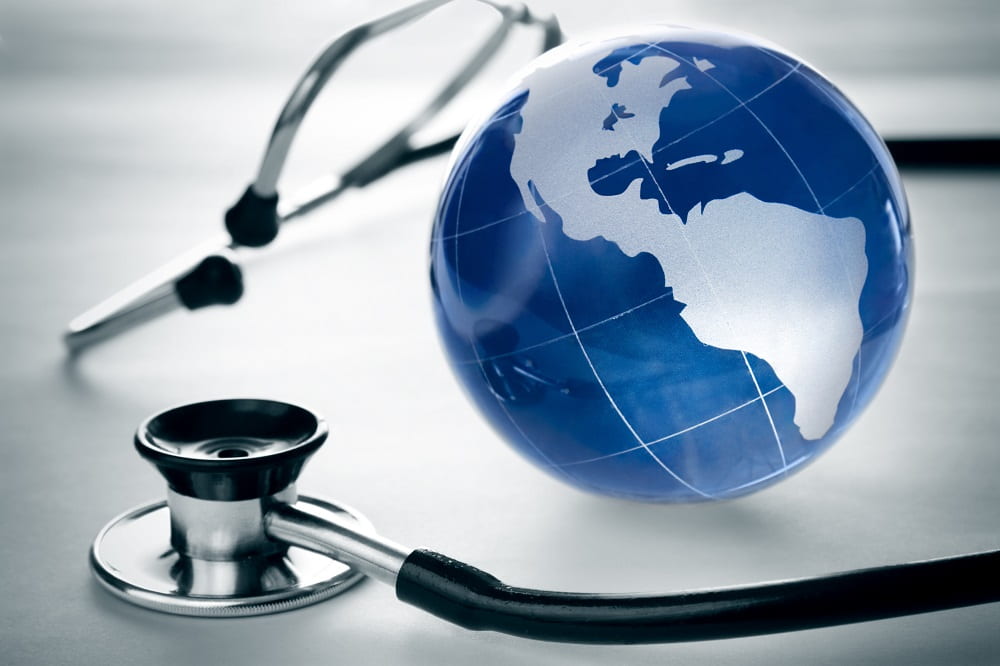We were blaming it often. Apparently technology was a blessing and a curse. It is human nature to always evolve, and with its evolution and the new hazards faced, it is our nature to blame something for it.
When the COVID-19 pandemic started to evolve, one thing was clear: Technology would help us handle this pandemic. Everyone started working remotely because technology could allow us. We ordered online and we had delivered our order in our house. Doctor’s appointments were shifted online, just a call or a video call away. Apps were made to show you if you were in close contact with a COVID-19 case. Public Health officials were able to do contact tracing and to deliver public health messages through technology.
So how is technology helping health:
- Is Helping to Fight the Opioid Crisis
Delaware created a free new app which shows people what actions they need to take in the event of an opioid overdose. It also helps on how to recognize an overdose and where to buy naloxone locally to reverse such an event. Lifes can be saved if you know how to recognize an overdose and if you have access to naloxone usage.
- Is Helping to Fight Skin Cancer
Do you have a mole which has suddenly changed form or color and you are unsure about it. Or do you just want to keep an eye on them. Nothing can compare to a doctor’s appointment, but there is an application which can help you. They can track moles and lesions which can potentially become skin cancer. Early detection of skin cancer can make it curable and completely reversible. Here are some of the apps you can use.
- Is Helping to Train and Educate Physicians
A lot of telehealth centers have helped communities in training providers about the best practices to tackle different health issues. Examples of training are multiple and diverse. Minnesota for example is training its primary care doctors through a Prevention Pilot Project. The program involves training on pill consumption cut, care for opioid use disorder, and the use of MAT (medication assisted treatment) which uses medications to help withdrawal symptoms.
- Is Helping During COVID-19 Pandemic
We already mentioned some of the examples, but one that stands out is how technology is helping doctors in treating patients. When a new disease emerges, protocols are not immediately available. Doctors learn from their experience and from others’ experiences. The New England Journal of Medicine created a treatment stimulation to help doctors in deciding what was the right approach and treatment for different cases
Why is technology important to health information?
Health information through technology can improve health outcomes and achieve health equity. According to Healthy People 2020 health information technology is important because they bring about an age of patient- and public-centered health information and services.
When we combine IT tools and effective health communication processes, there is the potential to:
- Improve health care quality and safety
- Increase the efficiency of health care and public health service delivery
- Improve the public health information infrastructure
- Support care in the community and at home
- Facilitate clinical and consumer decision-making
- Build health skills and knowledge
What about technology and Global Health
Even though the great benefits of technology in health, communities in low and middle income countries are missing out on the benefits of digital health and technology usage. One of the reasons is because they continue to face a fragmented digital health landscape in which multiple public and private actors and agencies with varied technologies and interests are working separately and with overlap. According to the National Academies of Science, Engineering and Medicine: “there is a lack of coordinated funding aligned with government priorities; limited regional leadership and peer support; and a lack of low-cost, easily reused, and adapted technologies such as those built with open source softwares.”
The Global Initiative on Health Technologies is a WHO initiative which aims to make health technologies available to communities in resource-limited settings. They want to challenge the business and scientific community to identify and adapt “innovative” technologies that can have a significant impact on public health and they want to challenge the international community to come up with frameworks.
In 2018 a self-insertable and removable one-year contraceptive vaginal ring received regulatory approval from the FDA; this form of contraception can help women overcome barriers to consistent use in countries like Uganda. Male contraceptive gel, a technology that could bring more equality to the burden of family planning, is now on its phase 2 clinical trial.
Different partners are working to find innovative and applicable solutions. A lot of student projects are on Innovation and Global Health Systems. From health care app to help women refugees to hurricane-resistant vegetable gardens. Imperial College London has an annual student competition on global health innovation They welcome ideas from improving hygiene conditions to developing diagnostic tools for usage in remote areas. Yale and Stanford do have the same award type of programs.
The bottom line remains that even though we have advanced in technology, technology access and its usage remains low in middle and low income countries. We have the potential to find solutions and innovations which do not need to be the “discovery of the year”. They can be small things which will help the local community. We need to monitor, evaluate, adapt, and advocate and the most important way is to go where the people are. Only by being in the local community we can learn the local context and can learn what works, and what does not.





Thank you for sharing such great thoughts on global health and technology! You are completely right about “going where people are.” It is very important to understand the cultural context of a community before introducing a new idea or change in that community.